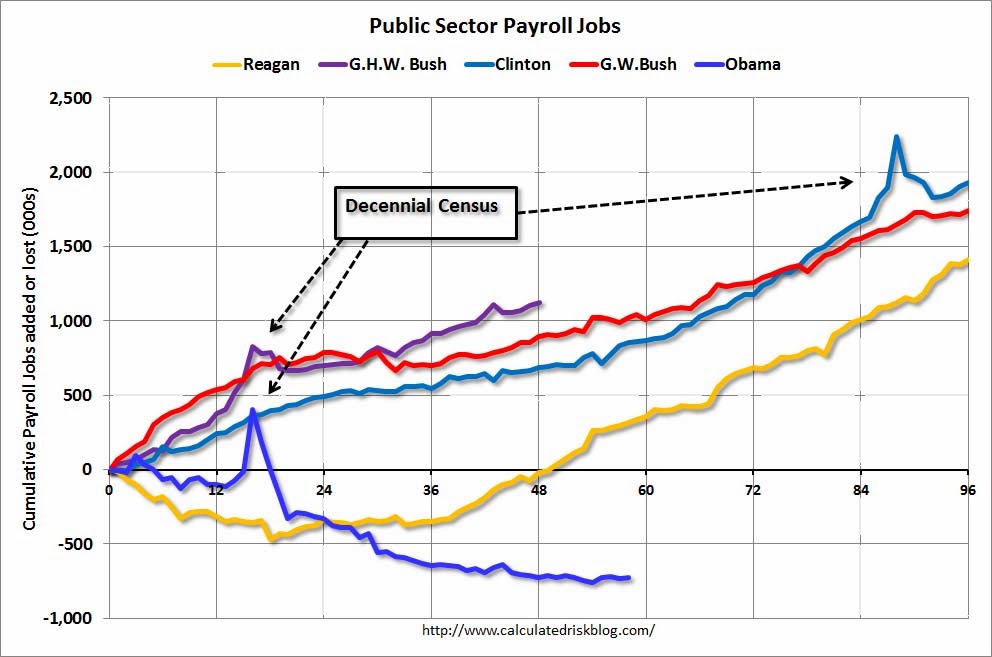It is estimated that at the one-year mark following the start of the stimulus, 166,000 of the 682,000 jobs directly created/ saved were in the private sector. Examples of private sector stimulus jobs include social workers hired by nonprofit groups to assist families, mechanics to repair buses for public transportation, and construction workers to repave highways.
Examples of government stimulus jobs include public school teachers, civil servants employed at state agencies, and police officers. While fewer than one of four stimulus jobs were in the private sector, more than seven of nine jobs in the U.S. economy overall reside in the private sector. Thus, stimulus-funded jobs were heavily tilted toward government.
http://research.stlouisfed.org/publications/review/2014/q2/dupor.pdf
====
Yes, fewer than 1/4th of these "jobs saved" were in the private sector. But of course Obama doesn't care for the private sector, so why would anyone be surprised?
What is most funny is that the Dummy Laureate still believes government spending is the path to a roaring economy.
face)(*^%
Examples of government stimulus jobs include public school teachers, civil servants employed at state agencies, and police officers. While fewer than one of four stimulus jobs were in the private sector, more than seven of nine jobs in the U.S. economy overall reside in the private sector. Thus, stimulus-funded jobs were heavily tilted toward government.
http://research.stlouisfed.org/publications/review/2014/q2/dupor.pdf
====
Yes, fewer than 1/4th of these "jobs saved" were in the private sector. But of course Obama doesn't care for the private sector, so why would anyone be surprised?
What is most funny is that the Dummy Laureate still believes government spending is the path to a roaring economy.
face)(*^%








